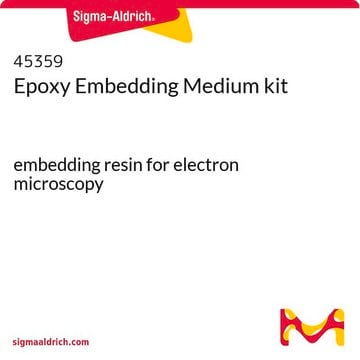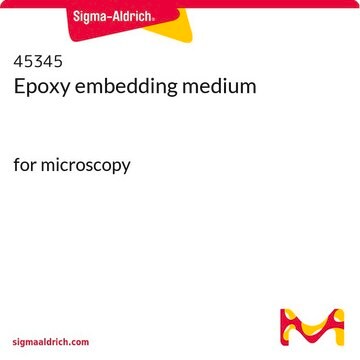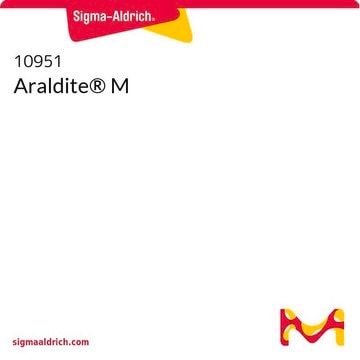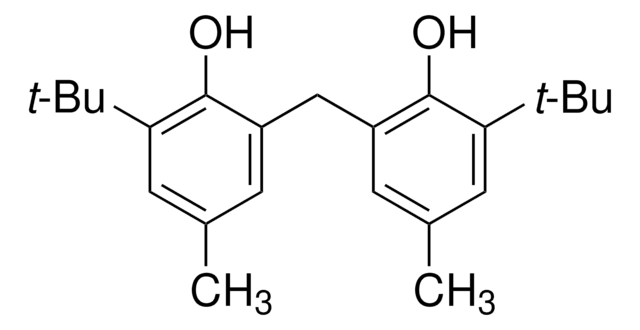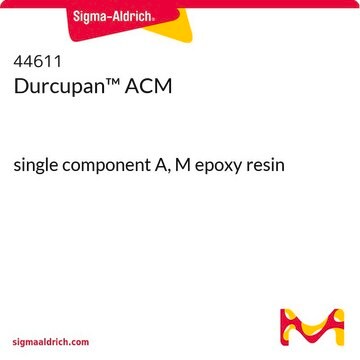45348
Epoxy embedding medium, accelerator
≥95% (NT)
Synonym(s):
2,4,6-Tris(dimethylaminomethyl)phenol, Epon™ DMP 30 substitute, DMP-30
About This Item
Recommended Products
vapor density
>1 (vs air)
Quality Level
vapor pressure
<0.01 mmHg ( 21 °C)
Assay
≥95% (NT)
form
solid
color
colorless to light yellow
refractive index
n20/D 1.516 (lit.)
n20/D 1.517
bp
130-135 °C/1 mmHg (lit.)
density
0.969 g/mL at 25 °C (lit.)
application(s)
hematology
histology
storage temp.
2-8°C
SMILES string
CN(C)Cc1cc(CN(C)C)c(O)c(CN(C)C)c1
InChI
1S/C15H27N3O/c1-16(2)9-12-7-13(10-17(3)4)15(19)14(8-12)11-18(5)6/h7-8,19H,9-11H2,1-6H3
InChI key
AHDSRXYHVZECER-UHFFFAOYSA-N
Looking for similar products? Visit Product Comparison Guide
Application
Legal Information
related product
Signal Word
Danger
Hazard Statements
Precautionary Statements
Hazard Classifications
Acute Tox. 4 Oral - Eye Dam. 1 - Skin Corr. 1B
Storage Class Code
8A - Combustible corrosive hazardous materials
WGK
WGK 1
Flash Point(F)
300.2 °F - closed cup
Flash Point(C)
149 °C - closed cup
Personal Protective Equipment
Certificates of Analysis (COA)
Search for Certificates of Analysis (COA) by entering the products Lot/Batch Number. Lot and Batch Numbers can be found on a product’s label following the words ‘Lot’ or ‘Batch’.
Already Own This Product?
Find documentation for the products that you have recently purchased in the Document Library.
Customers Also Viewed
Our team of scientists has experience in all areas of research including Life Science, Material Science, Chemical Synthesis, Chromatography, Analytical and many others.
Contact Technical Service
